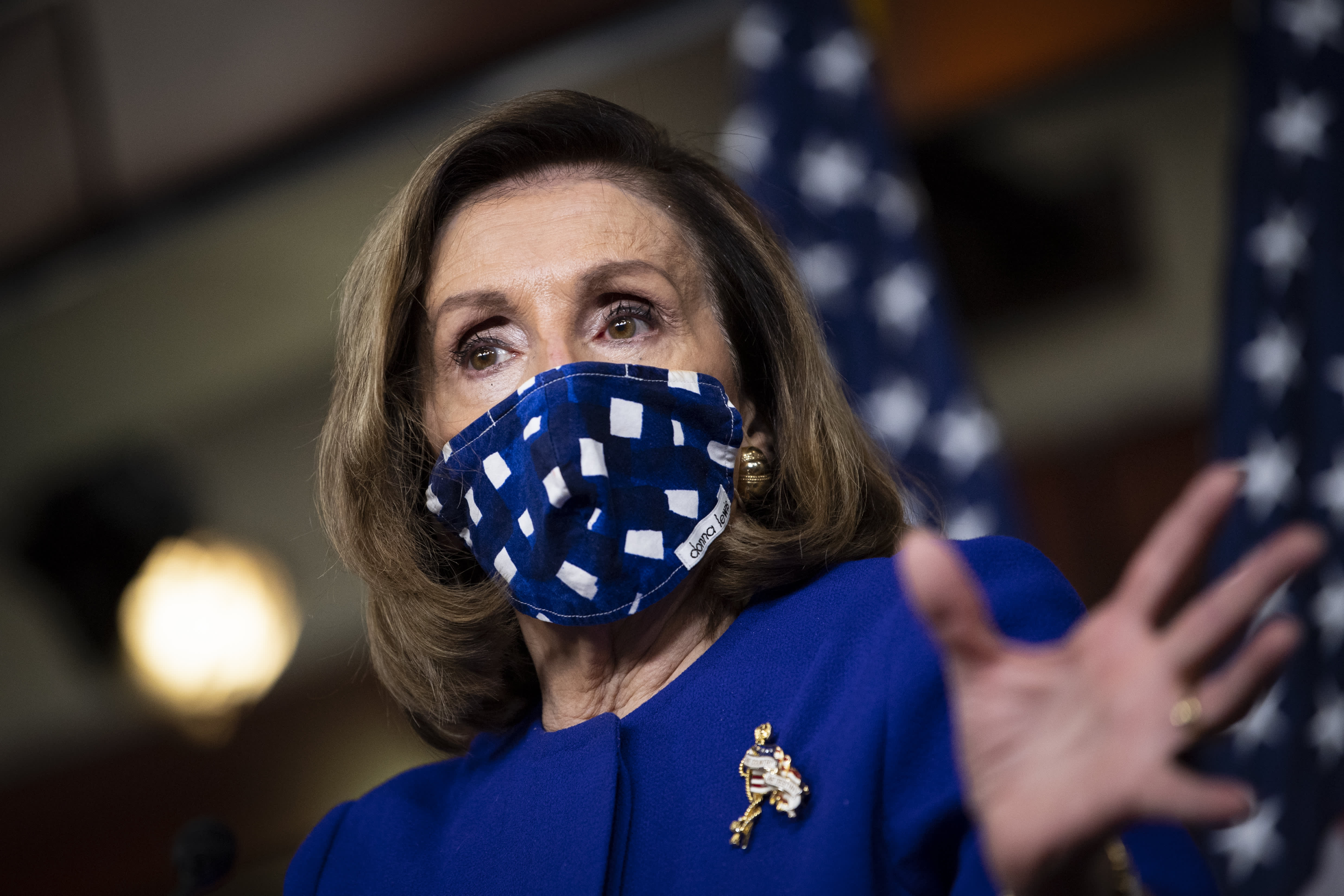Pelosi presses Mnuchin for answers on coronavirus stimulus as she pushes to restart talks

Speaker of the House Nancy Pelosi, D-Calif., speaks during her weekly new conference in Washington on Thursday, Oct. 22, 2020.
Caroline Brehman | CQ-Roll Call, Inc. | Getty Images
House Speaker Nancy Pelosi on Thursday pressed Treasury Secretary Steven Mnuchin for responses on continuing coronavirus stimulus disputes as talks toward a deal have stalled days before the 2020 election.
In a letter to the top Trump administration negotiator, the California Democrat said she is “still awaiting” replies from the administration “on multiple items of critical importance” as the Covid-19 outbreak rages across the U.S. She cited a bevy of differences the sides did not resolve during a pre-election scramble to strike a deal: a national testing strategy, state and local government relief, enhanced unemployment insurance, child care, tax credits, liability protections for businesses and workplace safety standards.
Congress left Washington and won’t be back until after Tuesday’s election despite record numbers of new infections and the threat of new winter economic restrictions hitting the economy and Americans’ wallets. While lawmakers will not send relief before the election, Pelosi signaled to Mnuchin that she wants to continue discussions after the country votes.
“Your responses are critical for our negotiations to continue,” the speaker wrote. “The President’s words that ‘after the election, we will get the best stimulus package you have ever seen’ only have meaning if he can get Mitch McConnell to take his hand off the pause button and get Senate Republican Chairmen moving toward agreement with their House counterparts.”
The Treasury Department did not immediately respond to a request for comment.
McConnell on Monday responded to criticism that Republicans rushed to confirm Supreme Court Justice Amy Coney Barrett before the election without passing coronavirus aid. He told Fox News that “we have been working on coronavirus relief.”
“Unfortunately, the Speaker has not been able to agree to anything remotely reasonable. We can do two things at once and we were trying to do two things at once,” he said.
Meanwhile, Senate Minority Leader Chuck Schumer cited the GDP report both as evidence that earlier federal stimulus worked and that Congress needs to send more relief.
“These numbers mask the reality that 23 million Americans remain on unemployment and tens of thousands of small businesses have already gone under,” he said in a statement. “Our nation still has a long way to go before we overcome this public health crisis and our economy fully recovers. Much more needs to be done.”
During months of failed efforts to reach another stimulus agreement, Democrats and Republicans have cited a fundamental dispute over what the federal government needs to do to lift an economy and health-care system battered by the virus. House Democrats last passed a $2.2 trillion package this month. Senate Republicans tried to approve a $500 billion bill, but Democrats blocked it.
The third-quarter GDP report released Thursday may only widen the gulf. The Trump presidential campaign and congressional Republicans swiftly touted the record 33.1% growth rate that came as states loosened public health restrictions.
The spike followed a worst-ever plunge of 31.4% in the second quarter — losses the economy has not fully recovered. Initial jobless claims also fell last week to their lowest level since March, but the total of 751,000 still exceeds any week before the pandemic hit.
Republicans promoted the GDP data as evidence their economic plans have worked.
“Republican policies have given us a strong foundation. Together, we’re moving forward,” Sen. John Barrasso, a Wyoming Republican and the third-ranking member of his party, said in a statement Thursday. “Senate Republicans have three priorities: getting people back to work, getting kids back to school safely, and putting the disease behind us. That’s our focus as we fight the virus.”
While Congress fails to send more aid to Americans, polls show voters broadly want more relief as millions still struggle to make ends meet during the downturn. A University of Texas Dallas poll taken over two weeks this month found 42% of voters nationally consider coronavirus stimulus their top legislative priority.
A CNBC/Change Research poll of the six swing states of Arizona, Florida, Michigan, North Carolina, Pennsylvania and Wisconsin released last week found 66% of likely voters believe the economy is struggling and the U.S. needs more financial relief. Only 34% of respondents said they think the economy is recovering and Americans do not need more aid.
The election outcome could shape whether negotiators can — or even want to — reach a stimulus deal in the months before the next president and Congress take office in January.




